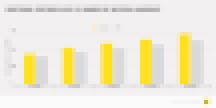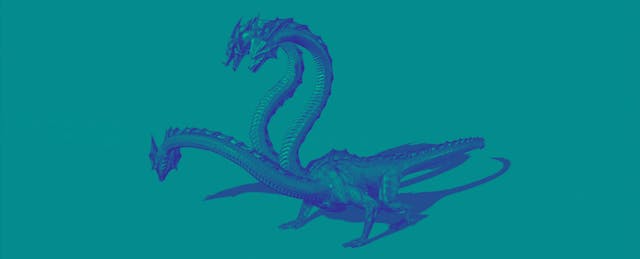A year ago, I wrote “The Next Pandemic: Mental Health” for National Mental Health Month, published in May 2020 in EdSurge. We were two months into the pandemic in America and already early signs of a mental health crisis were emerging from isolation and trauma.
It is now time to update this piece for 2021. Because the reality is that we are not only experiencing a mental health pandemic; we now have a three-headed learning crisis consisting of mental health, empathy and creativity.
Do you remember Hydra, the multi-headed, snakelike water monster from Greek mythology? According to the myth, Hydra possesses multiple heads and has a regeneration capacity. For each head that is chopped off, two new ones regrow in its place. Similar to the legend, we need to tackle those multiple and deeply intertwined heads at once. If not, the risk is that they may continue growing and multiplying.
Why does it matter? The global pandemic has exposed our new VUCAH (Volatile, Uncertain, Complex, Ambiguous and Hyper-connected) world order. We increasingly need creative, agile, collaborative minds. This is exactly what employers are telling us, too. Creativity, persuasion, collaboration, adaptability and emotional intelligence are the most-in-demand skills today, according to LinkedIn’s 2020 employer survey.
But here is the catch: Our children are growing in precisely the opposite direction. They are less mentally healthy, less empathetic and less creative than they were at the beginning of the decade. We have a rising imbalance between the supply of creative, collaborative, healthy young minds, and the demand for such talent. And I believe education has a major role to play in addressing this imbalance, starting in the early years.
A Three-Headed Crisis
1. Our mental health crisis.
Our country has been called, provocatively, the “United States of Anxiety.” That’s not wrong. In January 2021, 40 percent of adults reported experiencing symptoms of depression and anxiety—three times more than the rate in the first half of 2019. This means that the adults around our children—parents, educators and caregivers—have been feeling less well. And we know that “there is no child health without adult caregiver health.” Yet this trend persists throughout the education sector. Early childhood educators’ rates of depression symptoms nearly doubled last year. Among government employees, teachers are feeling the most burnout.

What about children themselves?
Among teens, 46 percent of parents reported a new or worsening mental health condition in their child since the beginning of the pandemic. And 29 percent of parents reported seeking help for their teen from a mental health provider. Suicidal ideation and mental health-related emergencies are on the rise.
For younger children, the impact is also significant. Researchers at the University of Oregon tracked the impact of the pandemic across 10,000 families with young children below age 5. They looked at the emotional distress of parents and caregivers (composite of depression, anxiety, stress and loneliness) and children (composite of fearfulness/anxiety and fussiness/defiance). According to their findings, the emotional distress of parents and children are interconnected. Factoring in hardships caused by the pandemic, it’s clear that COVID-19 has led to profound individual and collective trauma.

2. Our empathy and human connection crisis.
Levels of empathy in youth fell by nearly half between 1979 and 2009. The good news is that the current crisis has triggered a resurgence of compassion and empathy. Empathy, as a theme, is trending.

But those positive signals are being challenged by the increased isolation students have experienced during the pandemic. More than half of young people ages 18-25, and of mothers with young children, are feeling seriously lonely. Worse, preliminary data of a meaningful reduction in the emotional connection between new mothers and babies during the pandemic means there may be a long-lasting impact on our youngest generation, especially as it accounts for 25-50% of school readiness.
3. Our creativity crisis.
Creativity has been on the decline for the past three decades. Some experts estimate that 85 percent of children became less creative between 1990 and 2008. According to updated research in 2017, the creativity crisis has grown worse and is impacting the youngest age groups the most.
While there is no data yet on the pandemic’s impact on children’s creativity, studies have shown that play has declined during COVID-19, from reduced physical activity (including less time outdoors and fewer sports), and less unstructured play. We can reasonably infer that the pandemic is unlikely to have reversed the creativity crisis, and may even have aggravated its effects.
Tackling Hydra in Education
In the Greek myth, Hercules prevails over Hydra by removing all its heads and burning the roots at once. Education could be our very own Hercules against the three-pronged crisis we currently face. But, similar to the legend, it will require a decisive path forward along those multiple lines of mental health, empathy and creativity, and across actors—children and adult caregivers (family, educators, health providers)—all at once. So how do we do it?
1. Build emotionally healthy learning environments.
More than ever, in light of our mental health crisis, we need to build emotionally healthy learning environments.
This requires many concurrent interventions: leadership buy-in; trauma-sensitive classroom practices; positive responses to challenging behaviors; restorative justice practices; policy changes (e.g., expulsion as a last resort and funding for mental health); educator professional development; and strong systems collaboration among school staff, health professionals, families and, of course, children.
While it’s never too late to start, earlier is better. Even before the COVID-19 crisis, preschool children were expelled at rates more than three times higher than children in K-12. Harsh disciplinary measures were disproportionately impacting Black children—who accounted for nearly half of all expulsions but only 18 percent of children attending public pre-K—and children with disabilities.
There has been some progress. Sixteen states have adopted laws limiting or prohibiting suspension and expulsion in early grades. And preschool classrooms with behavioral consultation services, such as Infant and Early Childhood Mental Health Consultation (IECMHC), have recorded significantly lower expulsion rates. IECMHC has been shown to improve children’s social skills and emotional functioning; promote healthy relationships; reduce challenging behaviors; reduce the number of suspensions and expulsions; improve classroom quality; and reduce provider stress, burnout and turnover.
Funding for mental health consultation and support is on the rise, but only meets a fraction of today’s needs. It should become the norm.
There is little data on the number of “trauma-sensitive classrooms” in the U.S. What we know is that states with trauma-informed policies in PK-12 have grown from nine in 2017 to 30 in 2019, and the NASBE state policy database is tracking 40 states that offer trauma-informed professional development in 2021.
We can see these policies and approaches popping up all across the country. Some early childhood centers, like Kidango in California, are exemplifying trauma-informed education. The Wisconsin trauma-sensitive school initiative is modeling a tiered system of mental health responses. Louisiana is offering virtual therapy for teachers. New Jersey released the first community-driven childhood trauma plan, and Oklahoma’s trauma-informed care task force is piloting multiple strategies. Meanwhile, Head Start has launched trauma-informed care initiatives, and innovators like Noni Educational Solutions are developing trauma-informed solutions for early educators.
Important efforts are also connecting families. Examples include integrating a whole family approach and the science of adverse childhood experiences as part of the Consortium for Resilient Young Children in Kentucky and Ohio, a coordinated mental health system for young children and families in Hawaii, and trauma-informed text-messaging programs about protective factors and local resources to families by Ready4K in Tennessee.
There is some early momentum out of the shadows of the crisis. But we need more, and the time is now.
2. Teach empathy and social-emotional learning, starting early.
Early trauma impacts empathy development. More broadly, the latest neuroscience shows that emotion and cognition are profoundly intertwined, and that emotional competencies can be learned and taught. Some examples of impactful social-emotional programs include:
- Roots of Empathy, which is taught in early childhood and elementary schools, where a baby and his/her parent or caregiver join a classroom. Now reaching one million children globally, the program shows long-lasting decreases in aggression and increases in behavior toward sharing, inclusion and helpfulness.
- Think Equal, whose curriculum for 3- to 5-year olds also leads young children to be more socially and emotionally skilled, and substantially less angry, aggressive, anxious or withdrawn.
- Tools of the Mind, another evidence-based early childhood curriculum that focuses on promoting self-regulation and executive functions in young children by supporting make-believe play and playful learning.
- Better World Ed, which offers lesson plans for classrooms and for parents and families around the world for home learning, starting at age 2.
Empathy can also come from fostering connections across generations. GenX and Experience Corps are working on pairing grand-adults with younger children in early classrooms, and have shown various inter-generational benefits, such as reduced behavioral concerns, greater classroom engagement, improved literacy outcomes for children, increased physical health and mobility, greater social interaction and reported happiness, and even weight loss for grand-adults. Some promising digital solutions are also emerging, such as Caribu, Eldera and Papa.
3. Foster creativity and collaboration through play.
“The challenge is not how to ‘teach creativity’ to children, but rather to create a fertile environment in which their creativity will take root, grow and flourish,” says Mitchel Resnick, director of Lifelong Kindergarten at MIT’s Media Lab in Ten Tips for Cultivating Creativity.
A fertile environment for creativity is one that embraces imagination, creation/making, and play.
Some school districts are experimenting with play-based learning, given the strong evidence base. The state of New Hampshire recently adopted a play-based kindergarten. And in Michigan, Godfrey-Lee Public Schools—a school district with a high proportion of Latino dual-language learners from low-income families—is implementing the six Cs framework (collaboration, communication, content, critical thinking, creative innovation and confidence), developed by play experts Roberta Golinkoff and Kathy Hirsh-Pasek. Preliminary results suggest learner growth in critical thinking, confidence and creativity in grades K-2.
After many months of being cooped up at home, we need to encourage play of all kinds, including—and perhaps especially—outdoor play. In this regard, Washington became the first state to license outdoor, nature-based child care, after a successful pilot across five sites that launched in 2017 and a meaningful increase in parent demand.
Other innovators, like Synthesis and Tinkergarten, are looking to develop children who are enthralled by complexity and solving for the future, through collaborative games or guided play outdoors.
In the ancient myth, eradicating Hydra was a complex challenge, set as one of the 12 labors of Hercules, and one he ultimately did not accomplish alone. Addressing the multi-pronged crises of mental health, empathy and creativity will be arduous and require collective action. It will not be easy, but if we come together by making education the driver of our individual and collective heart-mind well-being, it can be done.


